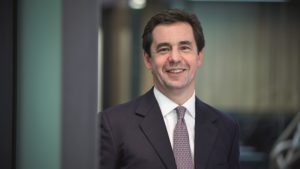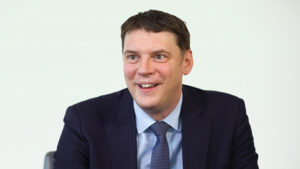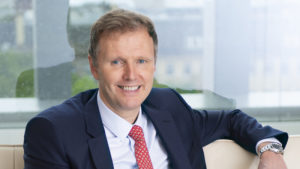A claim that active exchange-traded funds (ETFs) will usurp traditional mutual funds within 15 years has been met with scepticism by the industry.
“Our vision is that in the next 15 years every new fund will be an ETF and to survive mutual funds will need to look more like ETFs,” HanETF chief executive Hector McNeil told Portfolio Adviser, stating Oeics and unit trusts would become legacy products.
ETFs are more transparent and liquid, McNeil said. “We liken it to digital and analogue TVs. It took a long time to get analogue out of the system, but eventually digital took over. It was just better technology.”
The rise of Amazon was creating new types of investors that want instant gratification, he said. Institutional and intermediaries currently dominate ETF assets, but he thought retail investors would become an increasingly important driver of flows.
“They’re going to want to do everything on their mobile phones or desktop and they’ll want to see all their portfolio in one place. Multiple platform holdings of mutual funds and trading happening a day or two later is just going to go out the window.”
But others in the industry were sceptical ETFs will out compete traditional fund structures.
“I remain on the fence on whether all asset managers need to have a strategy,” says 7IM senior investment manager Peter Sleep. He points to money flooding into Fundsmith, Lindsell Train, Baillie Gifford and states it is performance, not fund structure, that drives inflows.
Liquidity was an illusion for many investors with platforms often batching ETF trades so that dealing was daily anyway, he says.
ETF transparency puts off fund houses
Transparency was touted as one of the main reasons asset managers would shy away from launching strategies via ETF structures, particularly among equity managers, who are worried the market will front run their trades.
That is why 70% of assets in active ETFs are fixed income products, says ETFGI chief executive Deborah Fuhr.
The US Securities and Exchange Commission (SEC) has been rejecting applications from asset managers for non-transparent forms of ETFs since 2008, Fuhr says.
“The most recent update was a year ago October, where the SEC said they weren’t comfortable with the proposals put forward by a few firms. Their concern was that without transparency the ETFs might not price around their net asset value.” While investment trusts have a disconnect between NAV and share price, Fuhr says this did not apply to ETFs as their structure is based around the “creation/redemption” mechanism.
SEC approval for non-transparent ETFs could be a catalyst for active ETF growth globally, she says. The Central Bank of Ireland is also looking at the effects of reduced transparency in its ETF white paper, which it is set to publish an update on in autumn.
Currently, active ETF and exchange-traded product (ETP) assets total $90.1bn held by 501 products, according to ETFGI data from May 2018.
On exchange, Fuhr says ETFs have the additional disadvantage of not trading fractionally, meaning investors cannot set the amount they wish to invest, something that can be achieved with mutual funds.
Risk missing the boat on ETFs
While McNeil expects ETFs would take 15 years to start replacing mutual fund launches, he says UK asset managers would need to launch ETF strategies soon or risk struggling to get products off the ground.
“It can take two to three years to get traction in an ETF, and so if asset managers have not launched these solutions by 2021, they could struggle to get them off the ground,” he says.
The prediction was described as self-serving for the ETF white-labelling business by several people Portfolio Adviser spoke to who did not want to be named.
McNeil says: “The Aberdeens, the Schroders and the Robecos that haven’t moved into ETFs yet are all going to have to have a solution and all the way down to the smaller firms too.” All three asset managers refused to comment on whether they would be moving into ETFs.
There will always been innovation and change, says JP Morgan head of international ETFs Bryon Lake, who disagrees there is a three-year time limit for asset managers to launch ETF products. “AT&T could have said in 1975 that if you haven’t launched your phone company now then it’s going to be too late in three years and Apple hadn’t even been founded yet.”
“That statement to me implies there is an end date in time and I think that evolution and innovation is continual.”







